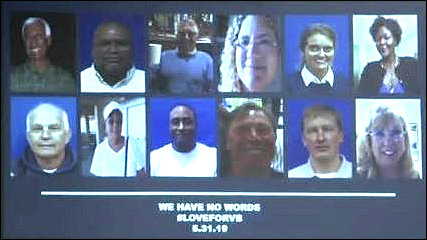Tragedy struck Virginia yesterday in the form of a mass shooting at the Virginia Beach municipal complex. The investigation into the shooter’s motive — undoubtedly tied to workplace violence — remains incomplete, but that probably won’t stop pundits and talking heads from indulging their usual tropes for and against guns.
I find both sides of the gun-rights debate to be tiresome. Gun control zealots act as if the availability of guns were the one and only issue: Limit access to guns and the country will be a safer place. Gun rights zealots act as if the ubiquity and easy availability of guns has nothing to do with the lone-shooter carnage that erupts periodically across the country.
To my mind, mass shootings are a complex social phenomenon for which there are no easy remedies. Permit me to advance a few propositions that, hopefully most reasonable people can agree upon.
Yes, the ubiquity and easily availability of guns is part of the problem. The fact that the overwhelming majority of mass killings are mass shootings is all the evidence we need to make this point. True, you can kill people by exploding bombs, running them down with trucks, and even stabbing them with knives (a growing phenomenon in countries with low rates of gun ownership). But alternative means of committing mass mayhem are either more difficult to execute, easier for law enforcement authorities to intercept, or less likely to be deadly.
But there is truth, too, in the argument that guns don’t kill people, people kill people. America has been a gun-owning society since its creation, and it has never been a particularly peaceful society. But shootings were most commonly the result of criminal activity or frontier lawlessness. The random mass slaying of innocents was exceedingly rare (if not unknown). Something has changed. People who are mentally ill or psychologically distressed have turned to mass shootings — often as a form of suicide by cop — as a way to express their extreme alienation. The wave of mass killings is a symptom of a larger breakdown in mental health.
Mass shootings are a predominantly male phenomenon. Males are more inclined than females to violent criminality across the board. But the mass killing of innocents seems to be a particularly male preserve. An FBI study of 160 “active shooter” incidents between 2000 and 2013 found that only 6 incidents, or 3.8%, were perpetrated by female shooters, according to the Guardian. (Mass shooters are disproportionately white, as well, although the disparity is less pronounced.) In a society obsessed with identity politics and fixated on racial and gender “disparities,” it is surprising that more attention hasn’t been given to this issue. Why are males (and to a lesser extent, whites) so much more likely express their social alienation or mental illness in this particularly horrific way?
Mass shootings are in part a media phenomenon. Not every mass shooter sees himself going down in a blaze of glory that will be immortalized in the media and on the Internet — but many of them do. Intense media coverage of mass shootings, along with the ritual expressions of pain and sorrow, creates a template for the mentally ill and emotionally distressed. People in pain want to inflict pain upon others. Mass media coverage emphasizes how effective mass shooters are in achieving that goal.
We will have to address all of these issues if we hope to tame this monster. Focusing on just one aspect of a multi-layered phenomenon will lead us nowhere.



